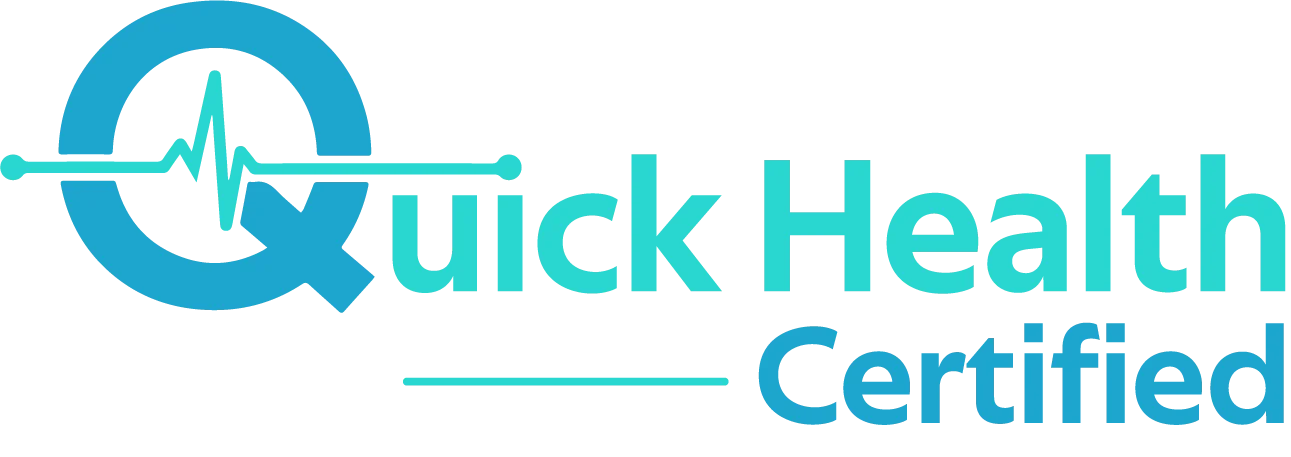Mon-Fri 9am to 6pm CST
by John Doe
31-July-2024

What is a Medical Assistant: Starting from the Basics
Imagine a bustling healthcare facility, where patients come and go, each with their health concerns. At the heart of this operation – often unnoticed – are what’s called medical assistants.
These people are dedicated professionals who play a vital role in ensuring the smooth functioning of healthcare facilities and providing quality patient care.
But that’s only a brief overview of a job so diverse.
So, in this post, we’ll take an in-depth review of this diverse healthcare career while also touching on related aspects like job duties, requirements to become one, and perks of becoming one.
Let’s begin!
What is a Medical Assistant?
Medical assistants are healthcare professionals who work under the supervision of physicians and other healthcare providers
They’re basically jack-of-all-trades who perform a wide range of administrative and clinical tasks, contributing significantly to the overall efficiency and effectiveness of healthcare delivery.
A Closer Look at Medical Assistant’s Role:
Administrative Duties
- Scheduling Appointments: Organizing patient appointments to optimize the clinic's workflow.
- Medical Record Management: Maintaining accurate and up-to-date patient records, both paper-based and electronic.
- Insurance Verification and Billing: Handling insurance claims and patient billing to ensure timely reimbursement.
- Answering Phones and Greeting Patients: Providing excellent customer service by addressing patient inquiries and welcoming them to the clinic.
Clinical Duties
- Taking Vital Signs: Measuring blood pressure, temperature, pulse, and respiration rate to assess a patient's current health state.
- Preparing Patients for Examinations: Helping patients in preparing for examinations, such as gowning and draping.
- Assisting with Medical Procedures: Assisting physicians with procedures like injections, wound care, and specimen collection.
- Administering Medications: Administering medications under the supervision of a healthcare provider.

How Do You Become a Medical Assistant?
As with any other occupation, the path to become a medical assistant generally involves education, training, and certification.
Education
The kind of education needed to be a medical assistant is as follows:
You typically need to complete a formal education program offered by community colleges, vocational schools, or online institutions.
The time it takes to complete formal education takes around 9 months to one year (for diploma) and 2 years (for an associate/bachelor’s degree). Whatever you opt for depends on your career goals and the time you can spare.
Speaking of which, for those seeking flexible learning options, online medical assistant certification programs are a great choice. These programs offer the convenience of studying at your own pace, making it easier to balance your education with work and personal commitments.
Regardless of whichever option you go for, these programs provide a comprehensive curriculum covering both administrative and clinical skills.
Training
As a beginner medical assistant, the type of training you do is divided into 3 types:
- Administrative: It involves training you in day-to-day clinical tasks, record keeping, and doing billings. Students also learn how to communicate with patients and put them at ease, as a medical assistant is often the first point of contact before reaching the doctor.
- Clinical:This program involves classes that cover aspects like laboratory skills, physiology, and medical jargon. apart form that, you’ll also have first-hand training on how to draw blood, take vital signs, give medication etc.
- Externship: This part of your training will involve you working with other experienced assistants in a hospital or clinical setting. This lets you get the real-world experience before you finally appear for the certification exam.
Certification
While a certification isn’t necessarily required in the US to work as a medical assistant, but having one has its perks, such as:
- Makes it easier to get a job
- Stands you out among other candidates
- You make more money than an average assistant
What Do You Need aka Skills to Be a Medical Assistant?
In addition to formal education, training, and certifications, certain soft skills are as much an important factor in this field.
These lesser-known but equally-important skills include:
- Communication skills: Effective communication with patients, healthcare providers, and colleagues is crucial.
- Attention to detail: Accurate record-keeping and precise measurements are vital in healthcare.
- Concern for others’ well-being: Understanding and responding to patients' needs and concerns is essential.
- Organizational skills: Managing multiple tasks and prioritizing effectively is key.
- Technical Proficiency: Know-how of using electronic health records (EHRs) and other medical-related software.
The Rewards of a Career as a Medical Assistant
- Job Security: The demand for medical assistants is consistently high due to an aging population and increasing healthcare needs.
- Diverse Roles: Medical assistants have the opportunity to work in various healthcare settings, such as hospitals, clinics, private practices, and long-term care facilities.
- Career Advancement: With additional certifications and experience, medical assistants can advance to roles like medical office manager or clinical medical assistant.
- Work-Life Balance: Many medical assistant positions offer flexible schedules and competitive benefits packages.
Salary of a Medical Assistant
As we’ve already covered, a career as a medical assistant offers a blend of clinical and administrative responsibilities, making it a dynamic profession.
But what about the financial aspect? What about a medical assistant’s salary?
The Bureau of Labor Statistics (BLS) provides valuable insights into the earning potential of medical assistants. As of May 2023, the average annual wage is $42,000 . It also indicates the job outlook for medical assistants for 2023-33 is seen at a whopping 15% - much faster than all other occupations, being at an average of only 4%.
This means medical assistants working in metropolitan cities or specializing in certain medical fields can earn significantly more.
The highest-paying states for this profession include Alaska, Washington, and California, where salaries can top $50,000 annually.
Furthermore, those who obtain certifications like the Certified Medical Assistant (CMA) from renowned platforms like Quick Health Certified have the potential to earn higher wages than their non-certified counterparts.

So, Is Medical Assistant a Good Career?
When considering whether medical assisting is a good career, there’s plenty of reasons to say “yes” as several factors make it an appealing choice.
First and foremost, the job market for medical assistants is strong, with a high demand for professionals in nearly every healthcare setting. In fact, as we’ve seen above, the BLS reports that healthcare occupations, including medical assistants, are among the fastest-growing in the U.S.
Beyond job stability, medical assisting also offers a relatively quick career path.
Most individuals can complete the required education and begin working in less than two years, making it an attractive option for those eager to start their careers without a lengthy college education.
Moreover, the work itself can be fulfilling. Medical assistants are often the first faces patients see when they visit a doctor’s office or clinic, making them an integral part of the patient care team.
Whether interacting directly with patients or helping healthcare professionals stay organized, medical assistants often report high job satisfaction due to their role in improving an individual’s overall health.
Conclusion
So, as you can see, medical becoming a medical assistant is a rewarding and accessible career path with growing job opportunities. Whether you're looking to work in a clinical or administrative role, the field offers diverse career options that can align with your interests and strengths.
If you're passionate about healthcare and enjoy working with people, a career as a medical assistant could be just the career choice for you.
And at Quick Health Certified, we make that possible.
Through our affordable, online, and self-paced courses, you’ll find it easy to find programs like Dental Assistant Bootcamps and start your journey towards a fulfilling career.
FAQs
Let's Meet
Please provide us your email address and we'll connect you with a member of our admission team.
Recent Posts
Allied Health in the Rearview Mirror:
What have we Learned over past 10 Years?
30-Jan-2024
Allied Health in the Rearview Mirror:
What have we Learned over past 10 Years?
30-Jan-2024
Allied Health in the Rearview Mirror:
What have we Learned over past 10 Years?
30-Jan-2024
Allied Health in the Rearview Mirror:
What have we Learned over past 10 Years?
30-Jan-2024
Allied Health in the Rearview Mirror:
What have we Learned over past 10 Years?
30-Jan-2024



 Chat
Chat